Martin Scorsese Teaches Filmmaking Masterclass Review
- Martin Scorsese Teaches Filmmaking Masterclass Review
- Why Film Editors should take Martin Scorsese’s Masterclass
- 5 Things I Learned about Martin Scorsese
When Masterclass.com announced that they would be releasing a new course on directing from the legendary filmmaker Martin Scorsese, I couldn’t wait to take a look at it.
Now that early access has been enabled I’ve jumped in to see what I can learn from this master of the craft, which is what this post is all about.
In putting together this review of Scorsese’s course I thought it was only fitting to also put together a ‘sister post’ on Scorsese’s long-time collaborator (over 50 years!) and editor Thelma Schoonmaker.
I’d love it if Masterclass created a course with someone like her (or any other incredibly talented editor), much like it’s excellent course on Film Scoring with Hans Zimmer (which I loved and reviewed here.)
So once you’re done here, jump over to this post to enjoy the best interviews and videos I could find with Thelma on the craft of film editing and the experience of being Scorsese’s editor on so many incredible films; Raging Bull, Goodfellas, Casino, Gangs of New York, The Departed, Wolf of Wall Street, Silence and so many more!
UPDATE June 2023 – Masterclass is now more affordable!
A new pricing tier, that works out to £10/month when billed annually, will save you £48/year compared to previous pricing of £14/month. The only difference is no downloads and 1 device.
If you don’t get physically ill seeing your first rough cut, somethings wrong. – Martin Scorsese
Before we begin, depending on your age dear reader, or how far back your film literacy goes, you may or may not be personally acquainted with director Martin Scorcese’s incredible body of work.
If you’ve not watched Taxi Driver (1976), Raging Bull (1980), Goodfellas (1990), Casino (1995) Gangs of New York (2002), The Aviator (2004), The Departed (2006) – to name but a few, then you’ve not seen much of the pantheon of great cinema!
So go and watch those, and then you’ll be in a better position to understand who and what this particular Masterclass is all about.
But given that you’re reading this review, and given that you’ve probably not been living under a rock on Mars you probably know who Martin Scorsese is, and are likely a fan of his work.
If you want a quick primer on Scorsese and his use of silence (and sound) in his filmmaking, then this episode of the incomparable Every Frame a Painting, is excellent.
How Masterclass.com Courses Work
Essentially Masterclass.com are courses are an extensive curriculum of video lessons supported by course books and extra homework activities (via PDF downloads) and ‘Office Hours’ where students can engage with their tutors through submissions of work or participate directly with them in Q&A sessions.
There is also an increasingly thriving community of users sharing insights and raising questions in ‘The Hub’.
As each lesson has comments from viewers underneath it’s always worth reading these to see what other students took away from the lesson. As you can see in the screen grab above, there are 71 comments on lesson 4 of Scorsese’s course alone.
It’s worth mentioning that each video lesson is supported by Closed Captions too, if English isn’t your first language, or you’re hard of hearing.
As an added bonus to taking the course you also get a special promo code for a 30-day free trial to Filmstruck.com.
The subscription service is a joint venture between the Criterion Collection and Turner Classic Movies, which seems to have select titles from both, not available on other streaming services and vice versa, in a ‘expertly curated catalogue’ which refreshes and evolves every month with new content being added and some content being removed.
According to the small print on the Masterclass.com site the 30-day free trial you get with the Scorsese course is only available in the US. However the UK site is offering a 7-day free trial anyway, so you can always get a taste of it before you lay out any cash.
Scorsese’s Directing Masterclass – An Editor’s Review
So, now we’ve made it to the actual review! So, what’s in the course and is it any good?
The course is made up of 30 individual lessons, all of which are based on an extended interview with Martin at “the Alice Tully Hall, on the corner of 65th Street and Broadway in Manhattan at the Lincoln Centre in New York“, one of his personal shrines to cinema, where the New York Film Festival takes place, and he went every year he could.
For some reason you can’t see a full list of the lessons before you enrol, but some example chapter titles include:
- Discovering Your Process
- Developing Your Style
- Finding the Story
- Directing Actors
- Costume Design
- Shooting Low-Budget Films
- Editing (in 2 Parts)
- The Importance of Sound Design
- Promoting Your Film
There’s a huge amount to love about this course, a few things that took me by surprise and a couple of things that disappointed me – relative to my expectations and other Masterclass.com courses I’ve taken.
So let me just set the stage by stating who I think this course is for, and why the should watch it, and who it might not be suitable for.
I think this course is best suited to someone who has an unbridled passion, an obsession, as Scorsese calls it, for making films. There’s a story they simply have to tell and they’re looking for a mentor who can encourage them, inspire them and guide them towards that goal.
I think that’s the greatest thing any teacher or guide could give a student; that is the confidence and the inspiration to make you think ‘well I know it’s crazy, but maybe I can do it!’ (On Film School, Chapter 3)
It’s probably best suited to someone who already has, at least a little, experience of filmmaking so they can more readily extract and apply his wisdom to their own context.
It’s not really a class for learning about the practical nuts and bolts of filmmaking.
If you’re looking for that, then Ron Howard’s Masterclass on Directing is probably an excellent choice, as it features a lot of workshops with actors, practical staging and planning and ‘the practice’ of filmmaking. (This is the great thing about the All-Access Pass, you don’t have to decide between courses, you can watch them all!)
Martin’s Masterclass is more akin to an immersion in the love of cinema, meshed with a deep understanding of the craft and insights on the work of some of the best filmmakers in the last 100 years of cinematic history.
I guess one of the things that surprised me, although in hindsight it’s very obvious, is that every Masterclass course is entirely different. It is a reflection of that person, the nature of their personality, their career and where they are now in life.
So of course at 75, Scorsese isn’t jumping up and bustling a crew about, as Ron Howard does in his course, but Ron’s not talking with reverence about the work of Powell and Pressburger or Truffaut either. That said, Ron just directed Solo: A Star Wars Story, and Scorsese has a film in post and three in pre-production right now! So they’re both still making it happen.
Therefore I was a little disappointed at first, having gone into the course with my own expectations where I thought it would be more hands on, more interactive, more demonstrative – much like the way Hans Zimmer is in his course on Film Scoring – playing music, dissecting sounds etc. Or the way in which Aaron Sorkin is workshopping the opening Act of an episode of West Wing with a bunch of young writers.
But it’s not that, and that’s OK.
What I loved about the Scorsese Masterclass
It’s inspiring and confidence building.
There’s always so much to know, that you don’t know.
And I always found this to be something about filmmaking; no matter what that technology is, you shouldn’t be cowed by that technology or by the process.
You should have the kind of passion, bravery and the ignorance of wanting to get something done.
There’s always a reason not to get up and make the film you’re dreaming about. There’s always some technical or budgetary limitations you’ll have to overcome. There’s someone telling you, you can’t do it. And that’s just Martin’s own experience of making films!
So to have someone look you in the eye and inspire you to give it a go anyway, is priceless.
I wasn’t sure where to put this quote, which comes from the final lesson in the Masterclass, but I wanted to quote it at length, because I feel like it’s a great reflection on why this course is worth taking:
Well that’s the end of my masterclass and I want to go back to where we began, and say once again that you have to find your own way.
There are no manuals, no short cuts, no secrets.
You write your own manual, you develop your own shortcuts, you find your own secrets. You go where you’re drawn to go and you learn by doing the work.
If you’re scared, if it all seems too daunting, if the machinery of it all seems too big and scary and overwhelming, thats great.
You wake up in the morning and you do it anyway.
If it seems impossible; that’s even better. You do it anyway.
And as you go, like I said, remember that amidst all that machinery, you’re the one who is gonna make the picture.
It’s just you and the thing that sparked you to make the film.
You and the spark. In the end they are one and the same.
You guard that, because it’s precious.
Another thing that’s immediately obvious is that his love and knowledge of cinema is so deeply interwoven into who he is, that it comes out of him with every anecdote or reflection on a shot or a composition – either his own or where he drew inspiration from, which leaves you wanting to see these old films for yourself.
It reminded me of being back at film school, or of watching old movies as a kid, and basically ‘being in love’ with cinema. Having been a working editor for the past decade or so, sometimes the shine can be worn off that love, so it was great to have it rekindled.
This is also why Scorsese recommends that students watch the work of ‘the old masters’ (hence the Filmstruck.com tie-in) because “You should be exposed to it and see it as best you can. Not to learn from it but to see what your response is to it.”
One of the nice things about the way in which the lessons are edited, is that peppered throughout are old photographs of Scorsese making iconic films, or examples of his meticulous storyboards and editing designs (like the one above from Raging Bull) which add to the feeling of a biographical documentary to the class.
A few disappointments
If you’re a fan of his work, or have a deep appreciation for the history of cinema you’ll enjoy the whole course. I would put myself in that bracket too, but I struggled to watch too many of the lessons back to back (maybe you’re not supposed to!) because they all had a similar pace and rhythm.
Martin talking openly and earnestly about a topic – cinematography, editing, film school etc. but there wasn’t really much to break that up.
There are a couple of Scene Discussions, where he is talking about a scene as it plays in the background, or in the case of Fellini’s 8 1/2 they seemingly couldn’t get the rights to it, so he’s just describing it. But these are pretty short and don’t feel that connected to the previous discussions.
So in the end it’s quite a philosophical class about the inner voice of an artist, striving for creativity in the face of difficultly and the rich history of cinema. But that’s not really the kind of class that a young, first-time filmmaker is likely to be able to engage with or draw much from.
As I mentioned before, its probably better suited to someone who has either already directed, written, or studied film in some way and will enjoy absorbing Martin’s perspective.
Final Thoughts
That aside, I did enjoy watching the class for many reasons but if you simply want to hear some entertaining insights on the improvisation during the making of Goodfellas, or the famous “You talkin’ to me?” scene from Taxi Driver, along with a whole host of wisdom on directing for film, then it’s a gold mine.
Oh and go and read that long quote again about how you and the spark are all that matter.
Check it out for yourself on Masterclass.com
5 Things I Learned from Martin Scorsese’s Masterclass
Here are five things I noted down whilst watching the course that intrigued or inspired me. Make of them what you will!
Scorsese felt called to be a priest
His early years, through to about being 18, were shaped by his desire to become a priest, due to his admiration for his local Catholic priest. Ultimately he chose a different path but he would say that the ideas of faith, morality, choices and consequences are a major theme in his work.
Faith is a major element in leading a moral life and that faith can have a lot of room for doubt.
Childhood asthma made him a filmmaker
Martin was afflicted by serious asthma from about 3 years old, which meant that he “observed a lot because wasn’t allowed to participate in anything too exciting physically as a kid.” And it was from this process of observing life that he began to develop his own sense of interpretation, perspective and ultimately imaginative storytelling from a very early age.
It’s also why he ended up watching a lot of movies as a kid, because he didn’t have much else to do.
I wonder if he hadn’t been burdened with this limitation to his freedom as a kid, whether he would have become a filmmaker at all?
The importance of staying open
Theres a story that Martin tells of the improvisation that crept into Goodfellas during the shooting, in this case in a scene in which Samuel L. Jackson’s character is murdered by Joe Pesci.
During the rehearsal for the scene an element of dark comedy crept in, due to some improv with a coffee pot, which wasn’t originally part of the script but Scorsese’s encouragement is to “stay alert to what’s happening in front of you and be open to changes that add value.“
I think this is especially true for directors and editors, because the edit is ‘the final re-write’ and so much of what was intended, or anticipated about a scene might have to change to serve the greater purpose of the story – as it’s emerging in the edit.
Being open to changes that add value is something that editors should strive for too.
The wonder of film editing
Scorsese says editing is his favourite part of the filmmaking process and is also the source of his tight collaboration with Thelma Schoonmaker.
This is how he describes it in the class:
It’s what I think of as the heart of cinema.
Every time I get to the editing room I’m struck by it again… you take one image and you put it together with another image and there’s a third phantom event that happens in the mind’s eye.
You could call it an image or maybe a thought or a sensation. Something happens that’s absolutely unique to this combination, or collision, of moving images.
And if you take a frame away from one shot, or you add a couple of frames to the other shot, the image in the mind’s eye changes.
This will always be a wonder to me.
He also makes an interesting observation on what changed in film editing with the switch from film to digital part-way through his career.
This is something that the majority of us never experienced! But it’s worth thinking about how our toolset changes our creative approach, whether we realise it or not.
When discussing how to make a change in a scene, what we were used to happening would take 25 to 30 minutes; as they were making that change, splicing film, syncing up… And you’d think about it, or if you weren’t thinking about it, you were in the presence of the change.
You were experiencing the ‘travel’ from one version to the other.
And at a certain point when we were using the computer, I’d ask for a change, “Why don’t we try this or why don’t we try that” and within 2 to 3 minutes it was done.
And so I had to learn to do without that process… that very valuable process of waiting.
Of waiting and absorbing what you’re doing.
Steele yourself against all these choices [that digital editing provides]…learn how to tame them… and the only way to do that is to keep focused on what you want to say.
Sometimes you just have to struggle
It was interesting to note that after the ‘flop’ that was The King of Comedy (which I thought was pretty funny!) Scorsese had a hard time getting another film made.
He was trying to get The Last Temptation of Christ made but he couldn’t do it. Eventually he came to After Hours, which he had to shoot as a low-budget film. They shot it over 40 nights averaging 25/26 camera set-ups a night.
Every shot was difficult, every night was difficult but his (now long-time) partnership with cinematographer Michael Ballhaus, kept him going and he credits Michael with rekindling his own love of making films.
Sometimes you just need to grit your teeth and keep going and apply yourself to the struggle that is filmmaking.
Check out Martin Scorsese’s Masterclass on Filmmaking and get inspired to make films once again too.
Scorsese shoots a 3-page Hitchcock script
Editor Vashi Nedomansky shared a link to this gem which sees Scorsese shoot a previously unmade 3-page script optioned by master filmmaker Alfred Hitchcock.
In 2007, legendary filmmaker Martin Scorsese embarked on an unprecedented experiment to preserve a film which was never made. Based on fragments of a script optioned by Alfred Hitchcock to direct, Scorsese attempts to recreate what might have been, through the eyes of who might have directed.

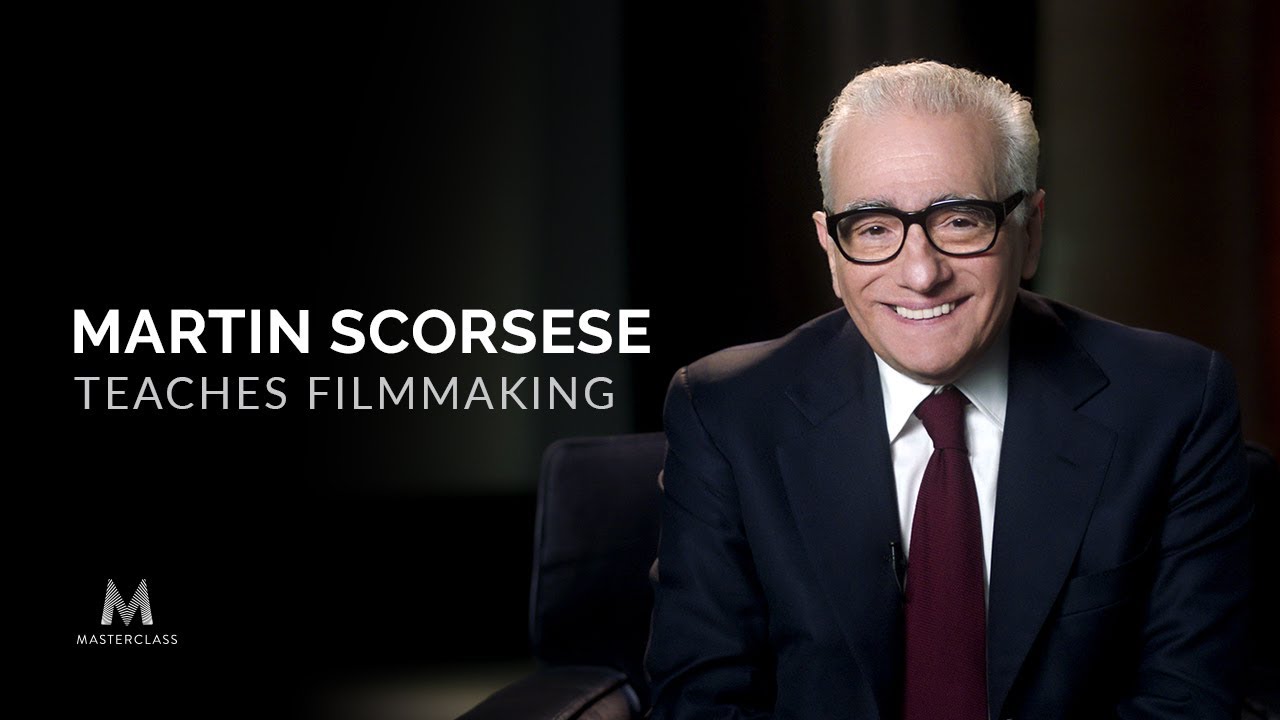
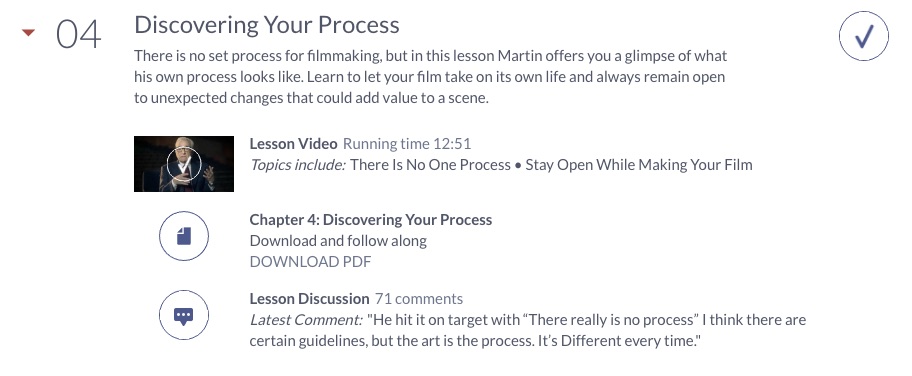

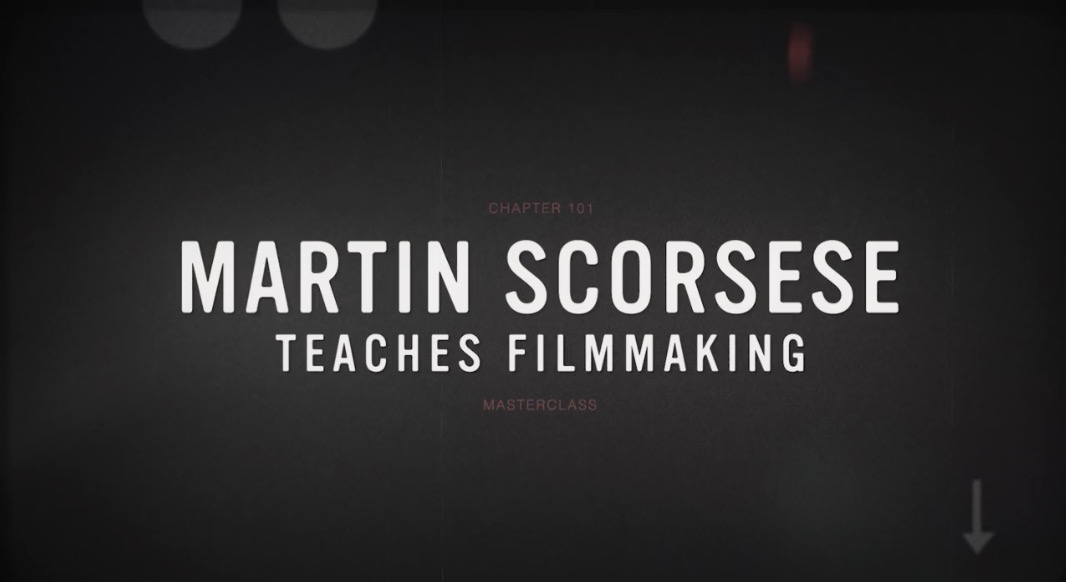
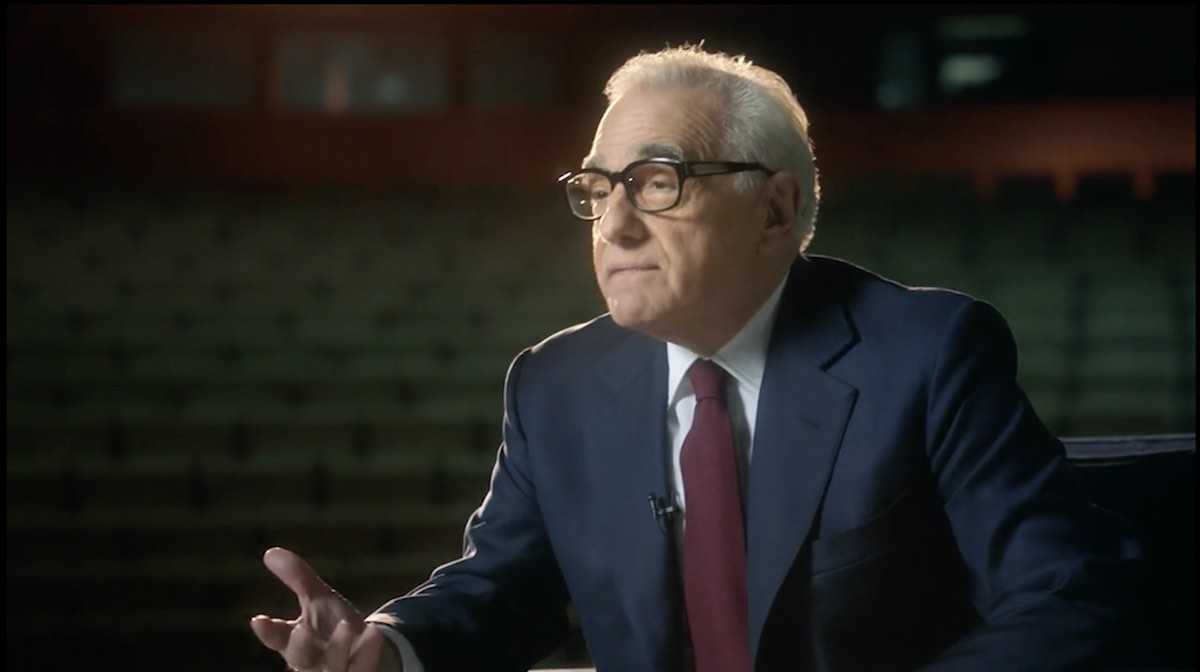
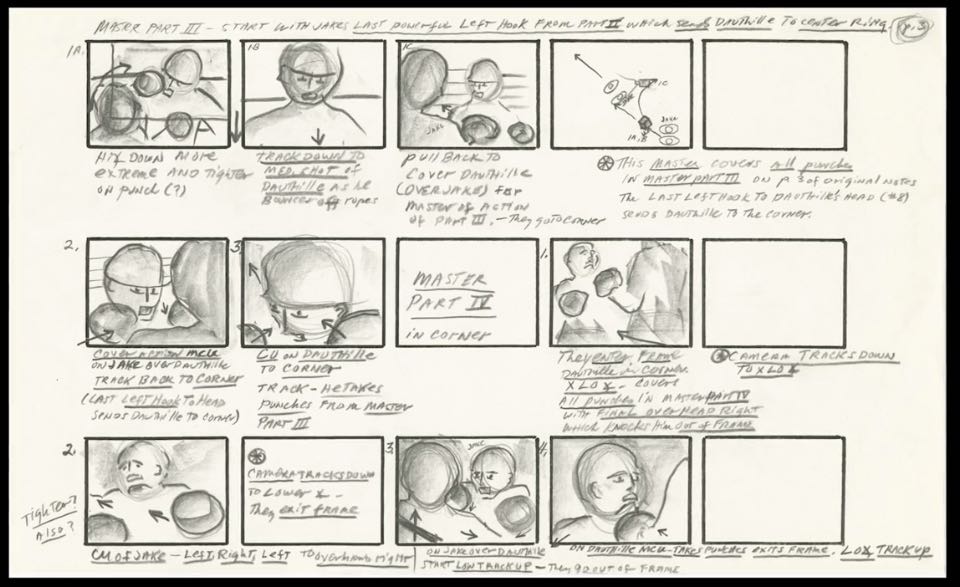
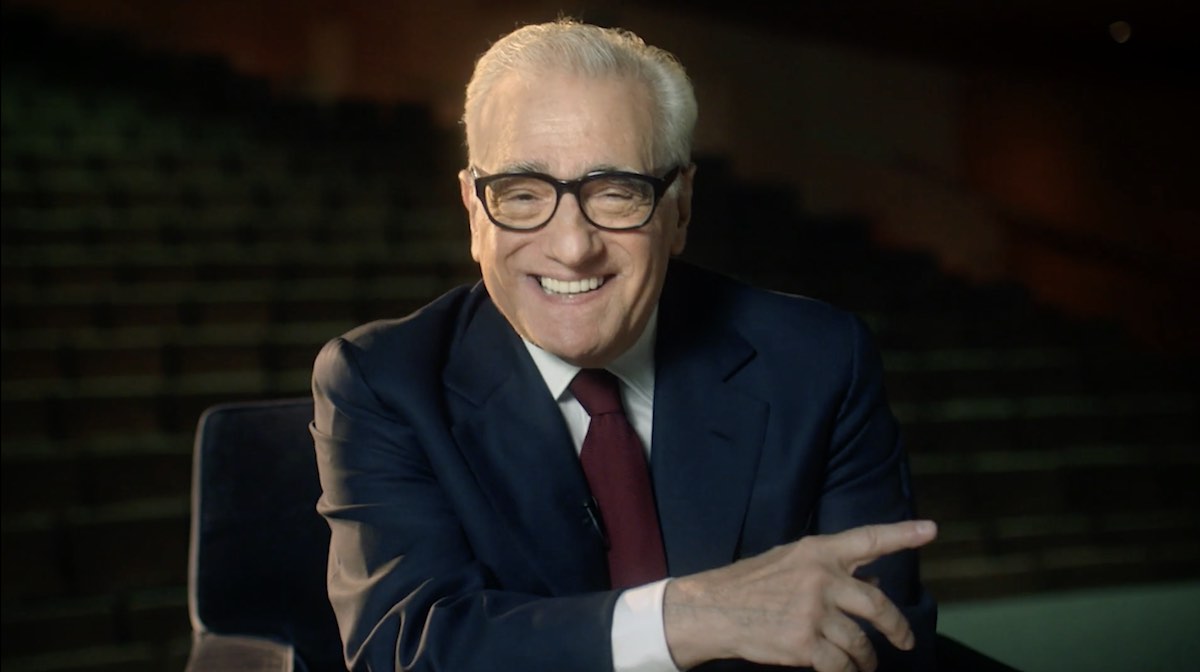
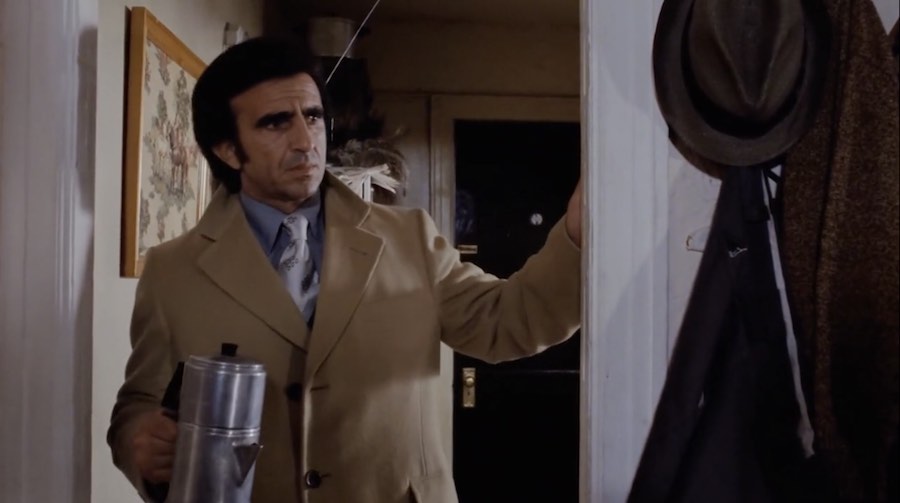




Hi! A question, is this Masterclass is actually available if you buy the All-Access pass? It has been under the “coming soon” section for ages and is still there on the Masterclass website…
Hi Roly
On my all-access account it allowed me to gain ‘early-access’ which I think is available to everyone? I’ll email them and see if I can get an answer, but I think there might have been some specific lessons that weren’t available yet. So that might explain the later ‘official’ launch date.
Hi did you get an answer to this? The classes are only eve ‘coming soon’. It’s Really Odd.
They don’t say anything anywhere about Early Access 🙁
Thelmthanks
Hi James
I think if you’re not logged in to an all-access pass then the class just says ‘coming soon’ but if you are logged into an all-access pass you get early access, although sometimes this means that not every lesson (in say 20/30 lessons) is available to watch.
Given the huge number of amazing people to learn from I think the All-Access pass is great value, if you can make the time for it.